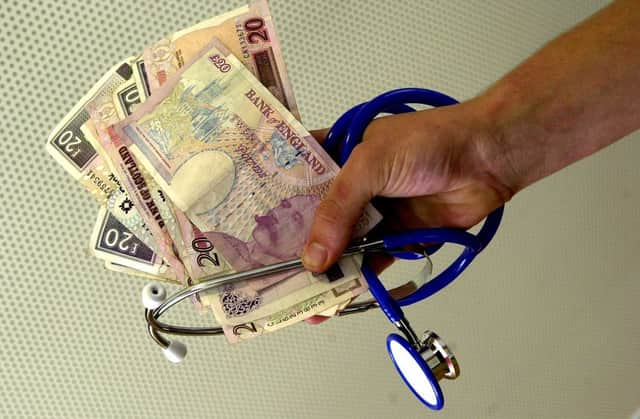New NHS drugs ‘to create £50m black hole’


Soaring costs are feared because of an additional 1,500 patients getting vital drugs they need in the first year of the new system.
The changes to the current set-up are being introduced after concerns that stricken patients found too many barriers in getting treatments for life-limiting and rare conditions on the NHS.
Advertisement
Hide AdAdvertisement
Hide AdThe cost of increasing the amount of drugs needed has previously been put at £70m – but Holyrood’s health committee was told yesterday this could hit £120m.
This is mainly down to drug firms putting forward fresh submissions for treatments that have previously been rejected.
Professor David Webb carried out a review of the system for the Scottish Medicines Consortium (SMC).
He warned there could be a “pretty substantial” rise in the bill when the impact of drugs being resubmitted was considered. While he said this could take the total cost to £120m, he told MSPs it could potentially mean a further 1,500 people could benefit from treatments – taking the total to 3,000.
Labour’s Richard Simpson warned that the Scottish Government would “have to get a handle” on the cost.
Prof Webb, from Edinburgh University, told the committee the changes would “deliver substantially improved access to medicines at the end of life and for rare conditions”.
He added: “There was an estimate of the cost in the first year, based on drugs we can see coming forward and would fit the bill, and we would then say yes to them. That was somewhere around £70m.
“That would allow an estimated 1,500 additional patients to receive treatment.”
Advertisement
Hide AdAdvertisement
Hide AdHe went on: “If we look back at resubmissions that have failed and they were also brought back into the mix, and they were successful, I think that is around another 1,500 patients, with an additional pretty substantial cost.”
Prof Webb told the committee: “We probably thought £50m for the resubmissions.”
Anne Lee, chief pharmaceutical adviser for the SMC, said there was “uncertainty” around the cost estimates.
She added: “They are estimates – some of the medicines might not come to market. We’re making predictions about what their list price to the service will be and those estimates don’t take into account any patient access schemes, any discounts that might come forward.”
But Dr Simpson said: “The government are going to have to get a handle on this, because £120m is 10 per cent of the drugs budget.”
The SMC has already outlined how it will change the system for approving new drugs by introducing Patient and Clinician Engagement (Pace) meetings to give patients’ groups and doctors more say in decisions about treatment for those with life-limiting and rare conditions.